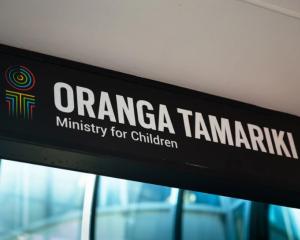
More money will also be spent on preschoolers to try and help them as early as possible - likely meaning less funding for special education at school.
The possible changes are outlined in a Cabinet paper released by Education Minister Hekia Parata as part of an "update" of the system focused on high-level changes.
Officials held meetings with more than 2200 people around the country as part of the update.
The Cabinet paper proposes changing the language used to describe the system.
"The use of the term 'special needs' singles people out, and by concentrating on learner's deficits, can marginalise individuals and create a barrier to a fully inclusive education system," the document states.
About 80,000 to 100,000 children in early childhood education and schools get some form of learning support each year -- about 10 per cent of the total student population.
The Ministry of Education has been struggling to meet growing demand as the school-age population grows and there is better and earlier identification of needs.
Last year about $590m was spent on special education. No change in overall funding is proposed in the Cabinet paper - but how and when funding is spent will be overhauled.
"Analysis of the spend by the age range of the recipient indicates that a disproportionate amount of the funds are for school-age children," the paper states.
"This is despite clear evidence in some areas that early support can have greater benefits in terms of educational outcomes."
The ministry will use the "social investment" approach to change the spread of funding.
Championed by Finance Minister Bill English, the work uses a powerful Statistics NZ database to track outcomes beyond NCEA results, such as employment.
Initial work will focus on:
- Reviewing the Ongoing Resourcing Scheme (ORS) that provides support for students with the highest levels of disability.
- How help is provided for speech disorders like stuttering and oral language delay, to work out how things could be improved if help is provided earlier.
- "Clustering" services and removing sometimes arbitrary eligibility criteria. For example, the intensive wraparound service is currently limited to children aged 8 to 14, when "early intervention might be more beneficial in the long-term".
Labour's education spokesman Chris Hipkins said early intervention should not come at the cost of cutting support for school-age children with special needs.
"It is short-sighted and stupid ... I absolutely agree that the Government can do a much better job of identifying and supporting children with additional learning needs earlier.
"But depriving older kids of the support they so desperately need is no way to accomplish that."
Green Party education spokeswoman Catherine Delahunty, who initiated a select committee inquiry into dyslexia, dyspraxia, and autism spectrum disorders in schools, said the proposals would not help.
"The Government is proposing to shift money around, and short-change children and young people over the age of seven. Everything I have heard shows the need for more support, and more funding, across all age groups, not less."
Education Minister Hekia Parata said evidence showed that providing learning support early in a child's life had a much greater impact.
"We want to make sure that the over $590 million we're investing in additional learning support is being spent in the most effective and impactful way possible so that kids get the best chance to achieve educational success.
"We're at a proposal stage of the process. Any changes wouldn't come into effect until March 2017 at the earliest and will be managed incrementally and carefully to ensure ongoing support."
New Zealand's inclusive education policy means that most special needs children are integrated locally, meaning any lack of resourcing has the potential to affect all students in a class with high-needs kids.
The Herald last year reported that some schools were turning special needs children away, while others only allow children to attend if a teacher aide is present. That is illegal.












